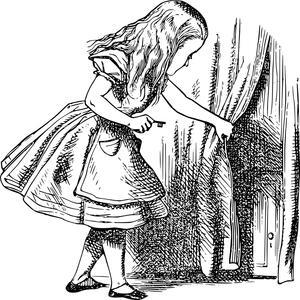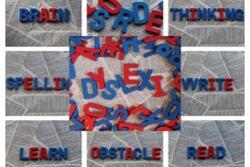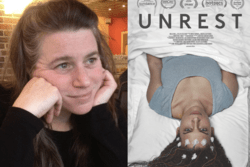Down the Rabbit Hole of My Disability
Alice from Alice's Adventures in Wonderland preparing to open the door. Illustration by Annalise Batista.
“She’s never struggled before,” my college counselor said to my parents. After three months of suffering in my Advanced Placement Computer Science A class this year, they sat down to talk. My college counselor’s comment wasn’t surprising to me; most of my teachers and classmates don’t know something about me that makes me different from them. I have a nonverbal learning disability, and I am not able to view things spatially. I am a slow processor who needs to learn certain material in nontraditional ways, and, for the past three years, I have felt isolated in my high school for this reason.
My small high school has particular STEM courses that are mandatory for every student. In ninth grade, one of these classes was Drafting and Design Production. I understood the concepts, but wasn’t able to execute the steps on the program since I had a difficult time understanding the different dimensions of the objects. My teacher couldn’t understand why I, a seemingly “bright” and highly motivated girl, could not complete the tasks. That year, my teacher asked a classmate to help teach me the material since this student understood the projects and was far ahead of the rest of the class. Instead of helping me, this student called me “dumb” and continually berated me. He even stole my flash drive and trashed more than 1,000 files from it. When I confronted him about taking the flash drive, he said that I was, in his words, “incapable of learning.” I wasn’t able to finish my final project for the course, and I felt ashamed.
During my sophomore year, after yet another neuropsychological assessment, the administration offered me the opportunity to take a course for seniors, Economics and Government, because of the high probability that the architecture course required for sophomores would be even more complicated for me than drafting. Many of my classmates questioned why I didn’t have to take architecture and came to the conclusion that it was because I’m somehow privileged, and, therefore, able to dictate my own schedule. At this point, I didn’t want to discuss my learning disability because, as far as I knew, most of my classmates and teachers at my specialized high school had never encountered someone who learns differently. I just shrugged my shoulders when they asked about it and tried to continue on my way.
These experiences with bullying were not the first that I've had in high school. I was cyberbullied in the middle of ninth grade for being “too smiley” and “a bitch.” I was ostracized from the rest of my grade. I lost a lot of the friends I thought that I had after I reported a death threat made against me. I smile in order to get through the day. Sometimes, I’m smiling because I am genuinely happy, but most of the time, at my high school, smiling is a survival mode for me. Every day, I tell myself “it’s going to be okay.” I smile to mask my pain.
If you were to meet me, you would probably look at my surface-level identity. I am considered upper class, I have a loving and supportive family, and I attend a highly ranked high school in New York City. However, by getting this glimpse of my life, you wouldn’t be able to see what I go through at school on a daily basis, or the challenges that I have overcome in my life.
When I was younger, I had difficulty walking and talking. I would crawl by dragging around my left leg. Because I needed so many therapists in order to learn how to walk, talk, and understand my body, I always felt behind. With years of therapy, I overcame these hardships and I’m in a different place. My “weaknesses,” which made me work much harder than others, also made me more sensitive and empathetic.
I call my classmates out for their use of the words “retarded” and “ed.” It pains me to hear these phrases being thrown around.
On the first day of my computer science class, I couldn’t understand how my classmates were able to seamlessly convert base ten numbers into hexadecimal numbers in a split second. While my classmate sitting next to me was on the tenth conversion, I was still thinking through the first one. Over the course of this year, my junior year, I’ve been no less confused. Trying to get the school to understand that I’m not just being difficult, helpless, or clueless on purpose feels like an impossible task. I have a learning disability. It feels like I’m entering the nonsensical and confusing world of Wonderland when I try to get the school to understand that. I’ve cried more times in the past three months about computer science than a person has fingers and toes combined. When I ask questions that highlight my confusion and cluelessness in class, I hear giggles throughout the room. I feel different. I am alone. Most of my classmates do not understand how hard this subject is for me. And none of my classmates know how many barriers I’ve overcome since birth. While I’ve found myself in this rabbit hole before, I’ve always managed to climb my way out. At least until now.
I’ve tried to climb up on my own; my knees are bleeding and my body aches from the effort. Yet, oddly enough, I’m still viewed as “perfect” by many teachers and students. I’ve taken a year off from one of my favorite activities, Young People’s Chorus, in order to get through a course load that includes many classes with large class sizes (two of them have between 60-100 students) and spatial concepts that would leave even the best learners dizzy. While I’ve temporarily lost my voice and footing, I know that this situation will not be forever. I have fallen through the rabbit hole of my disability, but I am privileged to have supportive communities that will throw me a rope and help me to rise once again. And, as I rise, I hope that my hands and knees will callus and become stronger, providing me with the agility to grab and support others who are falling down their own holes too.
This piece was written as part of JWA’s Rising Voices Fellowship.







ilana this is beautifully written. thank you for sharing this.